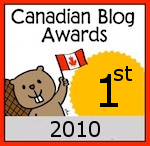Jayzus, what is it with all these little Latin American countries suddenly getting the itch to rewrite their constitutions–democratically? It all started with Venezuela, a little under a decade ago. Then Bolivia and Ecuador saw what good things happened and said “Gimme som’a dat!”, and before long, they had caught constitutional fever too. Now the epidemic is spreading to…HONDURAS? No shit, folks, it’s happening:
Translation mine.Of course, the opposition claims that this is Zelaya’s way of trying to stay in power past his allotted term, which expires in 2010, and that he’s imitating Chavecito. Well, what if he is? He also added Honduras to the ALBA, which may be why you don’t hear a lot of gloom and doom economic stories coming from there lately. The Honduran economy stands to benefit hugely from economic integration and co-operation with Venezuela’s, which is doing pretty damn well lately, even with the cost of oil supposedly falling (heh, heh–not for long, ye gloaters, winter is coming to the Northern Hemisphere, and guess who is still Venezuela’s Numero Uno customer?)So, if Honduras wants to take a leaf from Venezuela’s political playbook, too, why not? By the sounds of things, they need a new constitution anyway–to help them investigate those human rights abuses of the Reagan era–committed, with John Negroponte’s “help”, around the time the old constitution first came into effect. And in any case, it should get under the old Cold Warriors’ skins to see yet one more Latin American country get too autonomous for their liking. When is that ever a bad thing?The president of Honduras, Manuel Zelaya, announced today that there would be a plebiscite held in conjunction with the general elections in 2009. The plebiscite concerns the possibility of convening a Constituent Assembly in 2010.The Assembly will write a new constitution to replace the one dating back to 1982, “without dissolving the National Congress” (parliament) or changing the executive faculties during the process, Zelaya explained in a press conference shortly before travelling to the Dominican Republic. The president, whose rule runs from 2006-2010, said he had discussed his initiative with directors of the governing Liberal Party and the opposition National Party, the two largest in the country, but clairified that these had only been conversations. He explained that the first step will be a decree which he will deliver to the parliament, in the coming January, which will convene the plebiscite at the same time as the elections of November 29, 2009. At that time, Hondurans will elect a new president, three presidential designates (vice-presidents), deputies and mayors, and will vote over constitutional reform.Should the “yes” vote win, said Zelaya, the convening of the assembly will correspond with the government to be installed on January 27, 2010, when the handover of power is to take place.Zelaya said that his government will promote the “yes” and argued that it is necessary to “revise the juridical framework of the Constitution of the Republic, and put the country in order.”“What we want are clearer laws, mandates totally congruent with the reality that will allow the country a juridical, political, social, economic, and cultural order in which we all know the rules of the game,” he remarked.




I would like to congratulate you for keeping up with Central American political events. However, I would argue that the depiction of Zelaya as a reformer is a little off the mark. While Zelaya may genuinely care about the poor (and most neoliberal politicians haven’t) his governing policy appears to be equal doses of improvisation and incompetence. His nephew is accused of bilking the national phone company out of millions, as well as killing his political rivals. Two of his ministers have been brought up on corruption charges. However, rather than force them to resign, he celebrates their actions on national TV. Honduras desperately needs serious social reform. It needs land reform, increased social spending and business regulation. What it does not need is a man who treats the country as if it were his own private hacienda. Again, you have a well-done blog, at least someone up north keeps an eye on us down here.